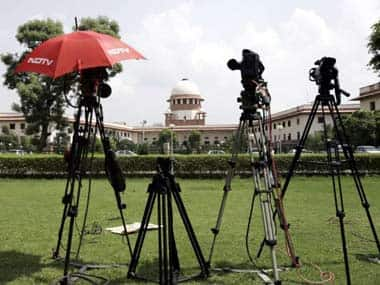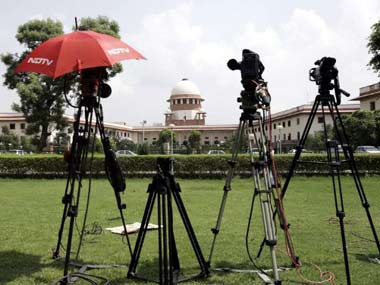The NDA government has notched up its first major legislative success with the President signing the National Judicial Appointments Commission (NJAC) Bill. Since this is a constitutional amendment bill (the 124th amendment), its passsage into law means that it is overwhelmingly supported by parliament and the majority of states. The law scraps the opaque collegium system of judges appointing themselves and replaces it with a new six-member panel headed by the Chief Justice of India (CJI), two of the senior-most Supreme Court judges, the law minister and two “eminent” persons. The NJAC will henceforth appoint and transfer judges. The two eminent persons are to be appointed by a three-member panel comprising the PM, the CJI and the leader of the opposition (or the leader of the single largest opposition party in the Lok Sabha). While it is too early to say whether the new NJAC will work smoothly, it still faces a constitutional challenge, with a bunch of Supreme Court lawyers, including Fali Nariman and Kapil Sibal, indicating their determination to challenge its constitutionality. According to The Indian Express, “the Supreme Court Advocates-on-Record (AoR) Association, and at least three apex court lawyers….plan to move the court soon after it reopens on January 5 after the winter break.” It is unlikely that the Supreme Court will let the opportunity to examine the legal validity of the Bill pass, for it is no secret that judges don’t like the NJAC. The previous CJI, RM Lodha, specifically opposed the bill. But one hopes it has the sagacity to acknowledge that the old collegium system was of even more doubtful legality, if not simply extra-constitutional. [caption id=“attachment_1629593” align=“alignleft” width=“380” class=" “]  Representational image. AFP[/caption] There are three reasons why the Supreme Court should not take the constitutional challenge by the AoR too seriously. First, the makers of the constitution never envisaged a situation where the Supreme Court will arrogate to itself the right to appoint judges to the higher courts. There was no provision for a collegium system. Article 124(2) of the constitution has this to say: “Every judge of the Supreme Court shall be appointed by the President by warrant under his hand and seal after consultation with such of the judges of the Supreme Court and of the High Courts in the states as the President may deem necessary for the purpose and shall hold office until he attains the age of 65 years; Provided that in the case of appointment of a judge other than the chief Justice, the chief Justice of India shall always be consulted.” This makes it clear that the president (meaning the government, for the president always acts on the advice of the government) is the prime mover in the appointment of judges, and the CJI merely has to be consulted. In the appointment of the CJI himself, the government may consult “with such of the judges” as it “may deem necessary”. Article 124 (2) could imply that the CJI may have a veto on the government’s judicial choices, but it certainly does not mean that the CJI and collegium judges themselves will decide whom to appoint on their own, with the government merely doing the administrative bits. As senior counsel TR Andhyarujina wrote some time ago : _“_The court has rewritten the provisions of the Constitution for the appointment of judges. The executive’s function in the appointment process has for all practical purposes been eliminated and reduced to the formal approving of a recommendation made by the CJI and his collegium.” Before entertaining the AoR request for a review of the NJAC Bill, maybe the Supreme Court bench looking into it should first read article 124 fully, and understand what seems to be its plain intent. Second, the bench should also ask itself a more fundamental question: should it overturn the collective wisdom of a constitutional amendment, which is not any ordinary law, but a law passed by both houses of parliament with a two-thirds majority and more than half the states, again with the same two-thirds majority? Does the Supreme Court want to challenge the collective will of the people, as expressed in the NJAC Bill, especially when the NJAC bill allows judges the right to veto any choice it does not agree with? Third, and most important, is this simple question: should the Supreme Court not acknowledge that it is an interested party to this litigation? Whenever there is a conflict of interest, judges can recuse themselves, but in this case, they can’t. The constitution leaves us with no scope to question the Supreme Court’s own legitimacy in deciding matters in which may be an interested party. However, the bench can act with integrity by making it clear that the old collegium system was clearly not in tune with the constitution. The only thing it can validly examine is whether NJAC can be improved. But for that, it can set up a periodic review along with the government. Rejecting the review would, in fact, affirm that the Supreme Court is truly independent, and is not just guarding its narrow interests.
The NJAC Bill, which has received presidential assent, scraps the SC collegium system of appointing judges. It will be challenged for constitutional validity.
Advertisement
End of Article
Written by R Jagannathan
R Jagannathan is the Editor-in-Chief of Firstpost. see more


)

)
)
)
)
)
)
)
)



